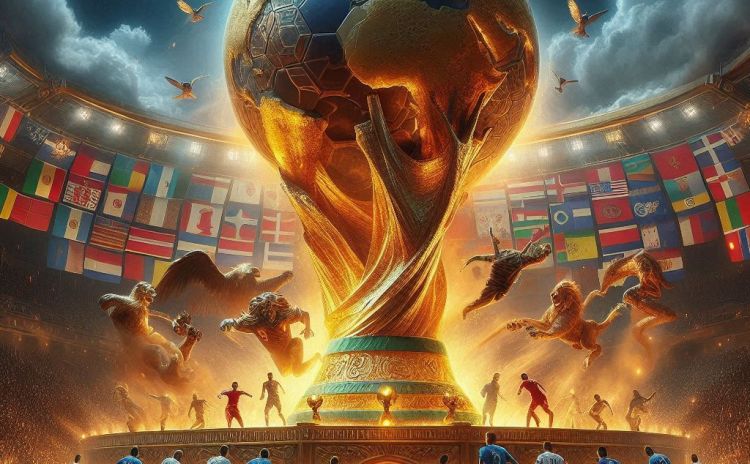
Discover the schedule for the 2026 FIFA World Cup qualification in the UEFA zone
The excitement for the 2026 FIFA World Cup is already building, and fans across Europe are eagerly awaiting the start of the qualification rounds. The UEFA zone, known for its competitive and high-stakes matches, will see national teams battling it out for a coveted spot in the World Cup. In this article, we will explore the qualification calendar, key dates, and what fans can expect from the upcoming matches.
Overview of the UEFA Qualification Process
Structure of the Qualifiers
The UEFA qualification process for the 2026 FIFA World Cup involves several stages. Initially, teams are divided into groups, where they play home and away matches. The group winners automatically qualify for the World Cup, while the runners-up and other high-performing teams enter the playoff rounds.
Number of Teams
With an expanded World Cup format in 2026, UEFA has more spots allocated for European teams. This expansion increases the competition and offers more opportunities for nations to qualify.
Key Dates and Timeline
The qualification matches are scheduled over a two-year period, ensuring ample time for teams to prepare and compete. The qualifiers are typically spread across international breaks, allowing players from club football to participate.
When Do the Qualifiers Start?
Official Kickoff Date
The UEFA qualifiers for the 2026 FIFA World Cup are set to begin in March 2025. This start date aligns with the international football calendar, providing a clear timeline for teams and fans.
Initial Group Stage Matches
The first round of group stage matches will take place in late March 2025. These initial games are crucial as teams aim to set the tone for their qualification campaign.
International Breaks
The qualifiers are strategically scheduled during international breaks in the football season. This scheduling ensures that top players can join their national teams without conflicting with club commitments.
Key Fixtures to Watch
Traditional Rivals
Some of the most anticipated matches during the qualifiers are those between traditional rivals. These fixtures not only draw large audiences but also significantly impact the standings in each group.
Underdog Stories
Every qualification campaign has its share of underdog stories. Smaller nations often surprise with their performances, making for exciting and unpredictable matches.
Decisive Matches
As the qualifiers progress, certain matches become decisive for teams vying for a spot in the World Cup. These high-stakes games are critical for teams on the brink of qualification or elimination.
Impact of the Expanded World Cup Format
More Spots for Europe
The 2026 World Cup will feature an expanded format with 48 teams, up from 32. This expansion means more spots are available for European teams, increasing the chances for nations that historically struggled to qualify.
Opportunities for Emerging Teams
The expanded format provides emerging football nations in Europe with a better chance to showcase their talent on the world stage. This inclusivity can boost the development of football across the continent.
Preparation Strategies for National Teams
Team Selection
National team coaches must carefully select their squads, balancing experience with fresh talent. The selection process is critical to ensure the best possible performance during the qualifiers.
Training Camps
Teams will conduct training camps ahead of crucial matches to build cohesion and strategy. These camps are essential for preparing players who usually compete in different leagues and clubs.
Tactical Approaches
Each national team will develop tactical approaches tailored to their strengths and the weaknesses of their opponents. These strategies will evolve as the qualifiers progress.
Challenges and Considerations
Player Fatigue
Managing player fatigue is a significant challenge, given the busy schedules of club football. National team coaches must navigate this issue to keep their squads in peak condition.
Injuries
Injuries can severely impact a team's performance. Monitoring player fitness and having capable substitutes ready is crucial for maintaining a competitive edge.
Travel Logistics
Traveling across Europe for away matches poses logistical challenges. Efficient travel arrangements are necessary to minimize disruption and fatigue.
Fan Engagement and Support
Role of Fans
Fans play a vital role in supporting their national teams. Their presence in the stadiums and support from home can boost players' morale and performance.
Fan Events
Many countries organize fan events and viewing parties during the qualifiers, creating a festive atmosphere and uniting supporters.
Social Media
Social media platforms provide a space for fans to engage, share their views, and stay updated with the latest news. Teams often interact with fans through these channels, building a strong community.
Conclusion
The road to the 2026 FIFA World Cup is set to be an exhilarating journey for European teams. With the qualifiers starting in March 2025, fans can look forward to a series of thrilling matches and intense competition. The expanded World Cup format opens new opportunities for emerging teams, promising an exciting blend of traditional powerhouses and fresh talent. As we gear up for the qualifiers, the anticipation and excitement continue to build, setting the stage for unforgettable football moments.
FAQs
When do the UEFA qualifiers for the 2026 World Cup start?
The UEFA qualifiers for the 2026 FIFA World Cup are scheduled to begin in March 2025.
How many European teams will qualify for the 2026 World Cup?
With the expanded format, more European teams will have the opportunity to qualify, though the exact number will be determined by the final allocation from FIFA.
What are the key dates to watch during the qualification process?
Key dates include the start of the qualifiers in March 2025, various international breaks where matches will be played, and the playoff rounds towards the end of the qualification period.
